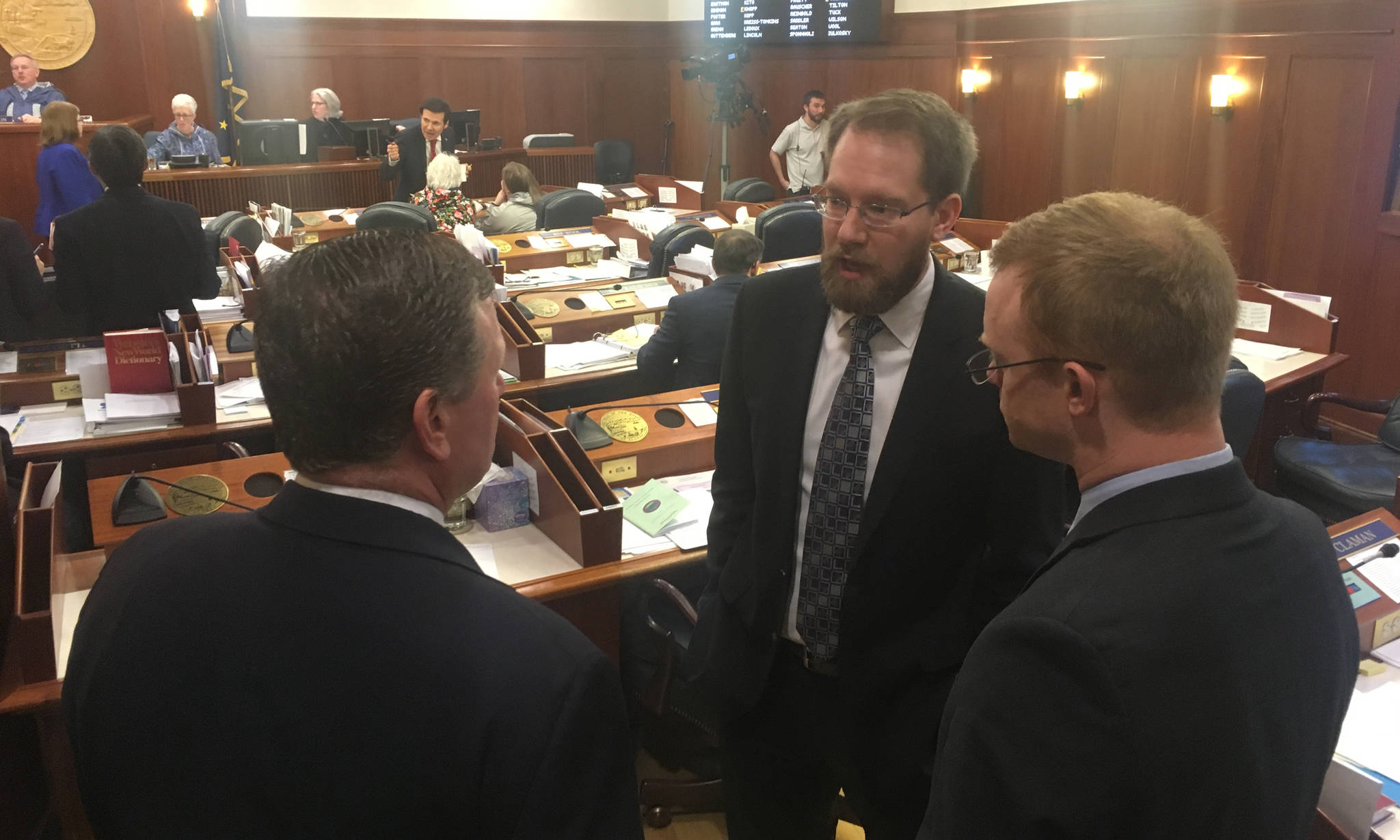With a rapid series of procedural moves Friday morning, the Alaska House of Representatives cut a proposed $2,700 Permanent Fund Dividend to $1,600 in an attempt to break a deadlock over the state’s operating budget.
With the main divide in the 22-member coalition House Majority now resolved, the path appears clear for a vote to approve the state’s operating budget on Monday. That vote would send the budget to the Senate, which will put its own stamp on the spending plan and return it to the House for further negotiations.
“I am confident we now have the votes to pass the operating budget over to the Senate,” said Speaker of the House Bryce Edgmon, D-Dillingham, following the vote.
[Reps. Parish, Kito divided by vote to boost PFDs]
Friday’s votes were a surprise, even to some members of the Legislature. Several members of the House Republican Minority were absent Friday, ahead of a weekend important to adherents of Abrahamic religions.
When the course of the day became apparent, minority members attempted to leave the chamber to huddle and discuss the upcoming votes but were blocked by a procedural action that kept them in the room.
“I assumed we would be doing something on Monday (April 2), and I assumed wrong,” said House Minority Leader Charisse Millett, R-Anchorage, after the day’s work concluded.
Friday’s votes concluded a week of uncertainty in the Legislature that began when House lawmakers voted 21-19 on March 26 to boost a proposed $1,258 dividend to more than $2,700 per person.
That amount is the figure set by the traditional formula, but it was strongly contested by legislators who felt the higher amount would come at the expense of state services including education, public safety and transportation.
“You can’t do both without adopting a rational fiscal plan,” said Rep. Les Gara, D-Anchorage, on Friday.
With the state facing a multibillion-dollar budget deficit, lawmakers are expected to turn to the Permanent Fund to cover the gap. (The state’s traditional savings accounts, the Constitutional Budget Reserve and Statutory Budget Reserve, don’t have enough money.)
A larger dividend, atop that need to fill the gap, would stress the fund, many lawmakers believe. Conversely, many lawmakers also believe that relying on dividend cuts alone to balance the budget unduly penalizes poor Alaskans, for whom the dividend makes up a larger share of their income. Those lawmakers support a progressive income tax and higher taxes on oil production to balance the burden of resolving the deficit.
“This has become a battle between working-class Alaskans … and those that are much better off,” said Rep. Geran Tarr, D-Anchorage.
• Contact reporter James Brooks at jbrooks@juneauempire.com or 523-2258.

